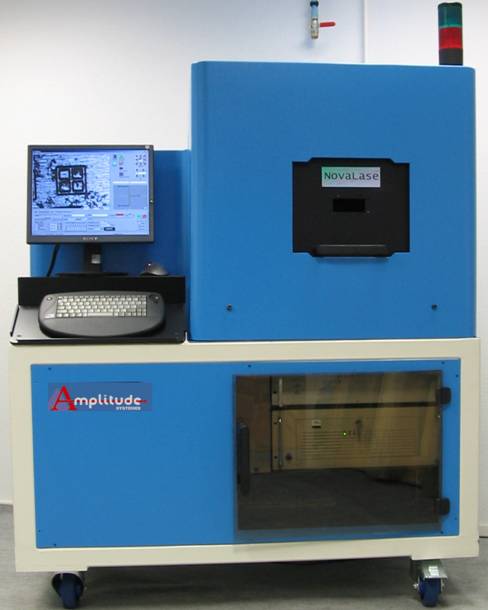 |
ALFAMET, a new femtosecond laser system for trace element analysis.
Amplitude Systèmes, in collaboration with the University of Pau, France, and Novalase, announces a new femtosecond laser system for trace element analysis.
Trace element analysis is the detection and quantification of minute traces of chemical elements within a sample, which provides essential data for environmental sciences (for example contamination by heavy metals), or geology. The method, named femtosecond LA-ICP-MS (Laser Ablation - Inductively Coupled Plasma Mass Spectrometer), involves removing, with a pulsed laser, a small quantity of the sample to be analysed. The particles generated are then ionised by a plasma, and analysed in a mass spectrometer.
 Alfamet trace element analysis system. Alfamet trace element analysis system.
In one application , the LCABIE laboratory of the University of Pau, France, studies the precise composition of the growth rings in sea scallops. Each ring corresponding to one day's growth so it is possible to determine very precisely the environmental conditions, even for the distant past.
Pollution monitoring in coastal waters with s-Pulse laser
Nanosecond lasers can be used for laser ablation. However, they suffer from a number of limitations, mainly related the thermal nature of the interaction between the laser light and the sample. Thermally induced heating can introduce a bias in the measurement, or worst case damage/fracture fragile samples.
Using ultrafast (femtosecond) lasers on the other hand, allows for precise, non thermal laser ablation, and therefore offers significant benefits in terms of sensitivity and measurement accuracy.
The ALFAMET system, uses a compact, industrial diode-pumped femtosecond laser (model s-Pulse). The innovative beam handling system takes advantage of the laser's very high repetition rate. The small footprint with exceptional ease-of-use of the laser result in a user friendly, computer controlled, compact system. |
|
